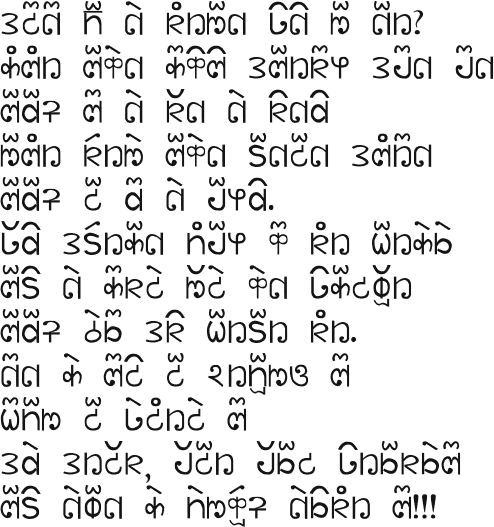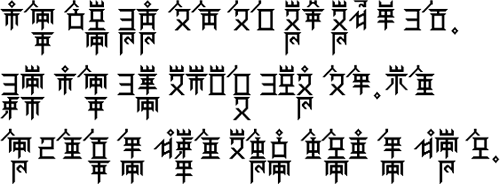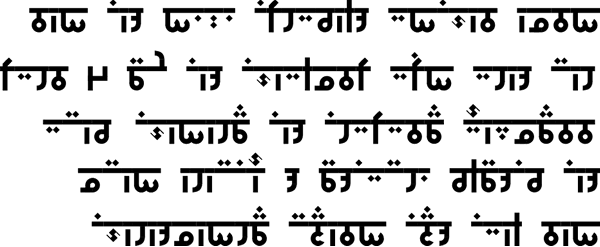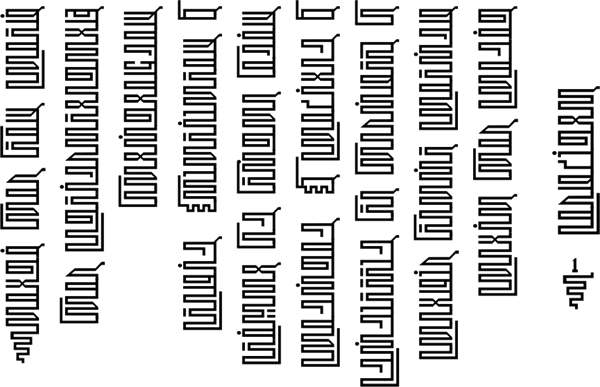Podcast: Play in new window | Download
Here’s the latest news from the world of Omniglot.
This week there are new language pages about:
- Dhatki (धाटकी / ڍاٽڪي), a Western Rajasthani language spoken in southern Pakistan and northeasten India.
- Penobscot (pαnawαhpskewi), an Eastern Abenaki language spoken Penobscot County in Maine in the USA.
- Moose Cree (ᐃᓕᓖᒧᐧᐃᓐ / ililîmowin), a central Algonquian language spoken Moose Factory Island in Ontario, Canada.
There are a new numbers pages in: Penobscot and Moose Cree, and in Kutchi (કચ્છી), an Indo-Aryan language spoken in Gujarat in India and Sindh in Pakistan.
There’s a new constructed script called Pangeul, which is an alternative way to write Esperanto and French devised by Paoli Mbongo and inspired by the Korean Hangeul alphabet.

There’s an Omniglot blog posts called Pepper and Salt, which is about words that always or usually go together in a particular order, also known to linguists as binomials. Such as salt and pepper in English, which is usually peper en zout (pepper and salt) in Dutch. There’s also a post about words for Moose in Cree languages, and the usual Language Quiz. See if you can guess what language this is:
Here’s a clue: this language is spoken in the far north.
The mystery language in last week’s language quiz was Khorchin Mongolian (ᠬᠣᠷᠴᠢᠨ), a variety of Mongolian spoken in the Hinggan League in the east of the Inner Mongolia Autonomous Region in the north of China.
There are new Celtiadur posts are about words for Tin and Metal and related things in Celtic languages.
In the Adventure in Etymology we’re looking into the origins of the word circus.
Here’s a little song called Ffaldiral that I wrote yesterday in Welsh and English. It’s based on the Welsh word canu, which means to sing, and can mean various other things.
For more Omniglot News see:
https://www.omniglot.com/news/
https://twitter.com/Omniglossia
https://www.facebook.com/groups/omniglot/
https://www.facebook.com/Omniglot-100430558332117
You can also listen to this podcast on: Apple Podcasts, Amazon Music, Stitcher, TuneIn, Podchaser, PlayerFM or podtail.
If you would like to support this podcast, you can make a donation via PayPal or Patreon, or contribute to Omniglot in other ways.







